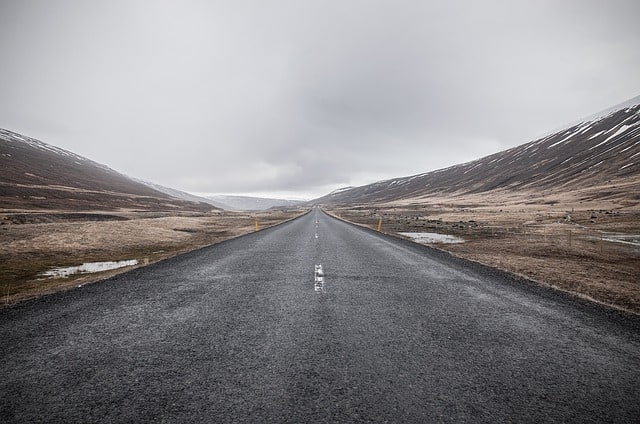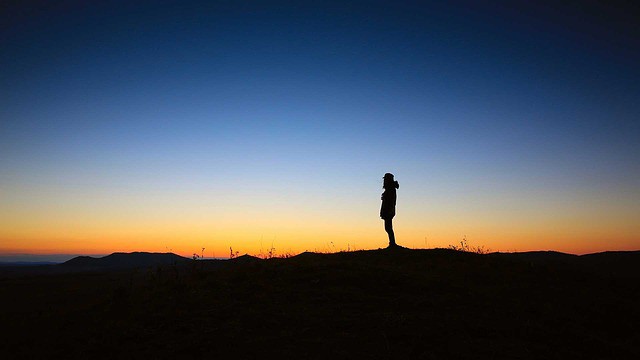It comes on suddenly. One moment you’re experiencing an exciting roller coaster of new experiences, emotions, thoughts, and people. You’re learning to become more versatile and adaptable each day, observing the mannerisms and customs of everyone around you, as if trying to learn a new dance so you can join in on the fun.
And then it happens. The exciting high of meeting hoards of new people, seeing new things, and always being the foreigner at the party wears off. There are small moments of frustration, indifference, anger, or boredom that all together begin to form this sense of loneliness. You wish you could just teletransport home to sit with a loved one and have a good, long talk. And let’s not forget those holidays when everyone you love at home is coming together and making priceless memories; those aren’t fun days.
Even surrounded by over 16 million people here in Istanbul, it is very possible to still feel isolated and utterly alone. And no, the antidote to this loneliness isn’t always to go out and try to meet more people. Sometimes the antidote to loneliness is to embrace the gift of solitude we as expats get, whether we like it or not.

Being away from all of our family and friends presents you with a very unique opportunity to learn so much about yourself. Without being pulled in a million different directions from friends and family at home, during this time you spend with yourself, you have a rare chance to observe and reflect on your patterns of thought, habits, behaviors, and decisions.
Now, I know that in the throws of loneliness, it’s hard to embrace and even appreciate your time alone. That’s why in the moment it’s so important to be able to pause, take a step back and understand whether what we’re feeling is loneliness or adjusting to spending more time alone.
What’s the difference between loneliness and being alone?
Most people equate sociability with wellness and happiness and they are right to some extent. We do, after all, need people we can connect with and talk to about our thoughts, joys, sorrows, and dreams. Yet especially as expats in a new country with little to no family or friends close by, it can be easy to feel as though all of this time you’re spending alone means that you’re being antisocial, sad, depressed, or unsocial. After days, weeks, and even months of doing most things alone, the line between solitude and loneliness becomes blurred.
The official definition of “loneliness” is sadness because one has no friends or companions. The definition of “alone”, however, is being “without anyone else”. So not only is “being alone” not the same as “being lonely”. Unlike loneliness, being alone is actually proven to be beneficial for our individual health and well-being. As people who spend a whole lot of time alone, part of the effort we must make to adapt and find our new normal is to embrace the gifts we can find in spending time with ourselves and learning how to accept solitude.
Solitude is a beautiful state we can create for ourselves to reflect, learn, reconnect with the present moment, and recover physically and mentally. Beyond the souvenirs, new foods, and people, perhaps one of the most valuable lessons we can learn from being an expat is how to master the art of solitude.
Time alone can be the best souvenir you get to take with you.
Despite the negative meanings we’ve loaded into the concept of “being alone”, solitude is actually very beneficial for us. Just ask Hemingway, Ana-ees Nin, Rilk-uh or Mary Oliver. Ask any creative individual and they’ll say the same thing. To quote the founding father of neuroscience, Santiago Ramon y Cajal: “Oh, comforting solitude, how favorable thou art to original thought”. The act of creating and reflecting requires solitude. You have to be alone with your own thoughts, with your own company to observe and reflect on your patterns of thought, your ideas, dreams, and goals.
By being alone, we are given this wonderful opportunity to tap into our own ingenuity and vulnerability to have an honest dialogue with ourselves. We’re able to observe our own thoughts, emotions, and behaviors. This cannot be done with outside stimuli that’s distracting us from ourselves.
Without having that time, we’re not able to sit in silence as we ask ourselves important questions and listen for the answers that come up. “What do I really want out of this relationship?”, “Do I really want to take this job?”, or “Why did that comment hurt me so much”. You’ll be surprised by what answers and thoughts emerge, and these discoveries can be an incredible source of guidance and reconnection with your internal compass. The more we avoid being alone, the more we avoid understanding our thoughts and emotions. And the less we understand what we’re thinking and feeling, the less ability we will have to live in our truth and fulfill ourselves.
Think about it. Since you’ve arrived here, what have you learned about yourself in spending so much more time alone? Have you surprised yourself? Are there some ideas and goals you’ve had the chance to think about and visualize?

How meditation can help ease you into embracing solitude.
Sure the idea of being alone can oftentimes be associated with being antisocial, sad, or like you’re missing out. Yet, take a moment to think about it—when you picture being alone, what comes to mind? Most of us don’t visualize ourselves being alone, but rather being lonely. Now that we know the distinct difference between those two, can we consider spending time by ourselves in a more positive light? If we can, we stand to learn so much more about ourselves and in turn be able to do the internal work to align with our values and purpose.
One way to warm up to the idea of being alone is to practice meditation. Meditation gives us a brief chunk of time to practice being alone with ourselves, and to observe our thoughts, feelings and physical sensations. Awareness meditations, specifically, are a perfect start to this journey. “Awareness” means being aware and present of the moment. This includes being aware of your senses, as well as what you’re thinking and feeling. Only by becoming aware of what you think and how you feel can you understand what’s going on inside you. And only by understanding what’s going on inside you can you have a deeper consciousness of yourself.
How to Begin Practicing Meditation.
You might be thinking, “Well, I don’t know how to meditate”. You might be wondering where you would even begin. For precisely this reason, we’ve worked to create a series on the Meditopia app, created right here in Istanbul, that is dedicated to explaining the foundations and basics of meditation.
I’ve recommended Meditopia to many friends who are also expats here, and the best feedback I’ve gotten from them has been that over time they feel more comfortable being alone and have become more aware of themselves. The more they’ve practiced these meditations, the more they talk about a sense of peace, confidence and security in their everyday activities.
If spending time alone seems like an uncomfortable or even terrifying prospect, try to start small. There are “Quick Start” options in Meditopia that feature “1 Minute-Long” and “3 Minutes-Long” meditations. While 10-15 minutes of alone time may be too much at first, 1-3 minutes is absolutely within your reach. Over time, you’ll find you’re able to sit longer and longer with yourself.

You might still be hesitant about giving yourself that time to spend with yourself. But think of it this way; How can you have healthy relationships with others – be they friendships or romantic relationships – if you don’t have a healthy relationship with yourself? If you don’t really know yourself, or if you’re uncomfortable or scared of spending time by yourself, then why would anyone else be willing to spend time with you?
Share with us below your thoughts on being alone here as an expat. How does spending time alone make you feel? If you’ve worked on spending more time alone, what has been the most helpful for you?
The translation of this article is by Zeynep Şen.









